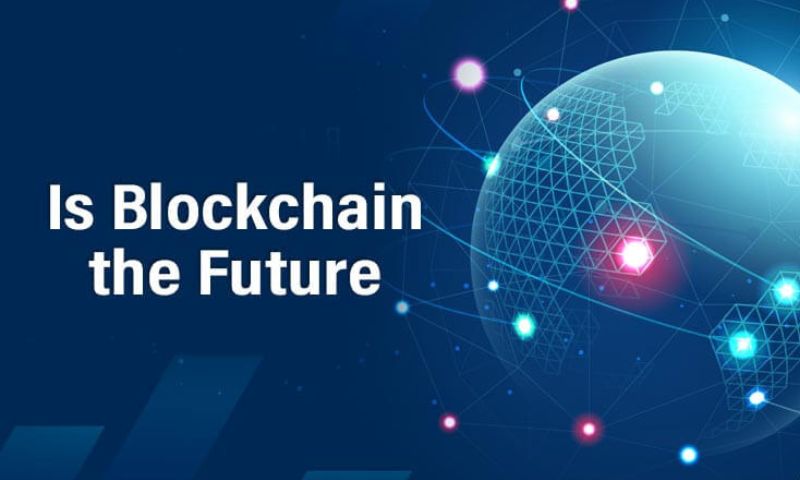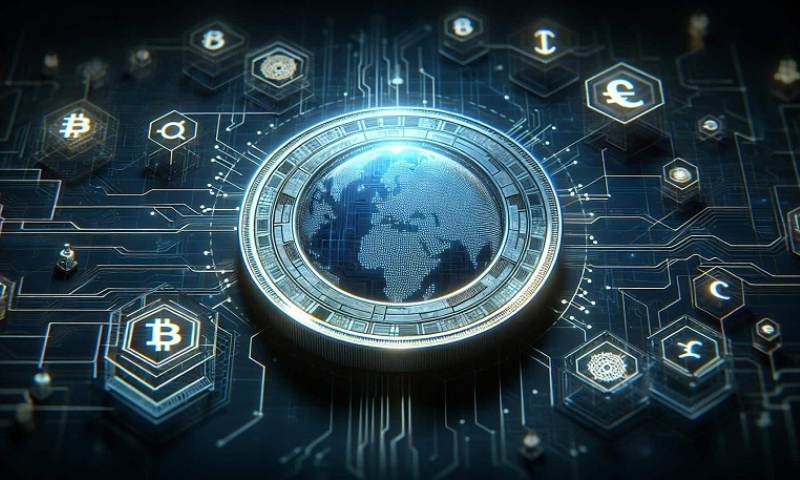Blockchain Beyond Bitcoin: Future Applications Set to Transform Industries
You’ve heard of Bitcoin, but the real game-changer is the tech behind it. Blockchains are shaking things up far beyond digital cash. From banks crafting smart contracts to doctors securing health data, this is the shape of things to come. Hold on as we dive into the examples of future applications of blockchain. You’ll see how it’s unlocking new paths across industries, making operations safer, smoother, and more reliable. Ready for a peek into a future where blockchain reigns? Let’s go!
Blockchain Beyond Bitcoin: Future Applications Set to Transform Industries
Reinventing the Financial Ecosystem with Blockchain
The Advent of Smart Contracts in Banking
Banks today seek faster and safer ways to handle money. Enter smart contracts. These are just lines of code or rules that live on blockchain. They kick into action when certain conditions meet. Think of them as tiny programs that move money by themselves, without humans poking around.
So, what are smart contracts, really? They are agreements that self-execute and handle funds automatically when things are set right. They cut out the middle person, speed up deals, and keep extra care of our cash. Banks love them as they save time and cut down on mix-ups or bad play.
Enhancing Cross-Border Payments with Blockchain Solutions
Now, let’s chat about money crossing borders. Usually, this is slow and costs a lot. With blockchain, we might see this change big time. Blockchain steps in to make sending money overseas faster and easier on our pockets.
Why are cross-border payments so complex? At present, they pass through many hands and systems before reaching their end. Each adds time and cost. Blockchain strips away these extra steps. Not only does it make the process leaner, but it also makes sure the money’s track can be seen. This is a game-changer for folks working far from home or firms doing global business.
Blockchain’s Role in Advancing Healthcare Integrity
Securing Medical Records through Blockchain
Imagine all your health records being super safe. That’s what blockchain can do. Each time you visit a doctor or get a test, this info gets stored. Think of it like a block of your health story. Each block links to the one before. It’s like a chain that no one can break. So, when you see a new doctor or go to a hospital, they can read your story—no mix-ups, no lost files, just your health story safe and sound. It’s like a health diary that only you and your doctors can peek into, thanks to unique codes or keys.
“How secure are blockchain medical records?” you might ask. The answer: very! Only people with special keys can open them. No one can change them without leaving a clear mark. Did you change cities? No worries, your health chain comes with you. No calls to your old doctor. No waiting for files. Just fast and secure.
This keeps you safe, stops mistakes, and saves time. It means doctors know your health history fast. They can treat you better, with no guesswork. It’s like a team of doctors all talking to each other in a language only they know.
Improving Drug Traceability and Supply Chain in Pharma
Now, let’s talk about the medicine you take. Sometimes bad meds get out there. This is scary, right? Blockchain fixes this. It tracks drugs from where they’re made to where they’re sold. This is like each pill bottle telling its life story. Now, if there’s a bad batch, we can find it quick. Pharmacies can check and make sure they only give out the good stuff.
For example, you’ve heard about recalls, right? Now imagine finding out in seconds not days. This keeps you safe. It can even save lives. Each medicine’s trip is recorded, like a passport stamp. You get to see the whole journey.
This isn’t just good for safety, it also fights fakes. Fake meds don’t have a true story. Blockchain spots this. It’s like a superhero for health, fighting the bad guys, and keeping you safe. Plus, we save money not chasing fakes.
This is only the start of blockchain in healthcare. Labs and companies are making new ways to use this smart tech. From keeping your records safe to making sure you get real, safe meds, blockchain is set to change how we think about health care. It’s not just about money or tech. It’s about keeping us all safe and healthy. And that’s a future worth looking forward to.
Blockchain for Secure and Decentralized Identity Verification
Implementing Self-Sovereign Identity Systems
Imagine being in total control of your identity. No more relying on others to confirm who you are. This is what we call self-sovereign identity. And blockchain is making it real. In these systems, you own and manage your own identity without needing a central authority. It’s like having a digital safe that only you can open. Your data stays with you. You choose what to share and with whom. Self-sovereign systems aren’t a far-off dream. They’re being built right now, changing how we think about IDs, online accounts, and personal data.
Preventing Fraud with Blockchain in Digital Identity Management
Fraud is a huge headache. It costs us all loads of money and trust. Here’s where blockchain steps in. It’s a game-changer for keeping identities safe. How? By creating unchangeable records of who’s who. That means when you share ID info, it’s checked against a blockchain. If it’s not a match, it’s a no-go. This isn’t just about stopping the bad guys. It’s about making our digital world safer and more trustworthy for everyone. And that, my friends, is a future we can all look forward to.
Democratizing Asset Ownership through Tokenization
Exploring the Growth of Asset Tokenization on Blockchain
Think of something valuable. Maybe it’s a painting, building, or a rare coin. Now, imagine owning a piece of it. With blockchain, we can tokenize these assets. This means turning them into digital tokens. Each token represents a part of the asset.
Tokenization on blockchain brings many perks. It makes owning assets easier and fair. Before, only the rich could buy expensive stuff. Now, tokenization lets many people own a part of something valuable.
This change is not small. It’s huge. It shifts how we think about ownership. It taps into the next-gen decentralized networks. Smart contracts make this process smooth. These are rules written in code. They work on their own and make sure deals go as planned.
Tokenization opens new doors in many fields. In real estate, it could make buying a home more simple. It could even change how we back projects.
People often ask about the safety of tokens. Blockchain’s design cuts fraud chances. It does this by spreading out the records. Everyone can see the deals made. This builds trust among people.
Fostering Fractional Investments and Improving Liquidity with Tokens
Now, let’s talk about bits and pieces. Or rather, fractional investments. This is when you own only a part of something. Buying a small bit of a house or art is now possible with tokenization.
These tiny shares make big waves. They can give more people a chance to grow their money. Folks who could not invest before, can now. They can buy bits of art, homes, or companies. And they can sell these bits easier too. This is what we call ‘liquidity’.
Next-gen blockchain tech is shaping our future. It is key in future tech and banking. More industries will use it soon. Healthcare, supply chains, and even voting systems could change with it.
Think about all the stuff yet to come. Smart contracts are just the start. We might see AI, big data, and even quantum computing join in. All because blockchain allows it.
But, with new tech come new rules. Yes, this means laws and ways to manage things. Some people are asking, “Can we handle this?” We must think about these changes.
To sum it up, blockchain is not just about money. It’s about making fair chances for all. We use blockchain to share ownership and make solid, public records. This gives us new ways to handle assets. It lets more people join in. And that, my friends, is the big deal with blockchain. It could truly change how we live, work, and play.
We’ve explored how blockchain goes way beyond Bitcoin to change many fields. In finance, smart contracts make banking smarter, and blockchain speeds up money moving across borders. In healthcare, it guards our medical records and tracks drugs safely from start to finish. For our digital IDs, blockchain stops fraud and lets us control our own info. And in owning assets, it lets people own little bits of things like art or real estate, making it easier to buy and sell.
From money to health to who we are, blockchain tech offers exciting chances to make things better and safer. It’s a huge leap forward and it’s just getting started. Keep watching this space – blockchain is about to do some big things!
Q&A :
What are some potential future applications of blockchain technology?
Blockchain technology has the potential to revolutionize several industries beyond its original application in cryptocurrency. Expected future applications include secure and transparent voting systems, supply chain and logistics monitoring, self-executing smart contracts, and decentralized identity verification systems. Moreover, blockchain could significantly impact intellectual property rights and royalty tracking, as well as provide immutable data backup services, and enable more efficient energy trading platforms.
How could blockchain impact the healthcare industry in the future?
In the healthcare industry, blockchain could offer improvements in data security, patient privacy, and trustworthiness of health records. Future applications might include the secure transfer of patient medical records, the management of pharmaceutical supply chains, the facilitation of health insurance claims and payment processes, and even the authentication of medical credentials. Additionally, blockchain could assist in research for disease tracking and outbreak management by providing immutable data storage.
Can blockchain be used to improve cybersecurity in the future?
Yes, the use of blockchain can potentially enhance cybersecurity efforts. Its decentralized nature and cryptographic security can help prevent unauthorized access, data breaches, and fraud. Future applications of blockchain in cybersecurity could include the protection against identity theft, secure private messaging, and more resilient DNS services. Additionally, blockchain might be used to create transparent and secure networks which could be less vulnerable to attacks like DDOS.
How might blockchain technology change the way we vote?
Blockchain has the potential to transform voting into a highly secure, transparent, and convenient process. Future applications might include online voting systems that can securely verify voter identity while maintaining anonymity, and providing a tamper-evident and auditable record of casting and counting votes, thus reducing the risk of fraud and malpractice. Such applications of blockchain could potentially increase voter participation and trust in the democratic processes.
What are innovative ways blockchain could be applied in financial services?
Innovation in financial services through blockchain could significantly change the industry’s approach to currency transactions, lending, and asset management. Possible future blockchain applications in finance include the creation of decentralized and stable digital currencies, peer-to-peer lending platforms without the need for intermediaries, more transparent and efficient cross-border payments, and tokenization of assets which can enable fractional ownership and investment. Blockchain could also streamline regulatory compliance and reporting through its immutable and transparent nature.


